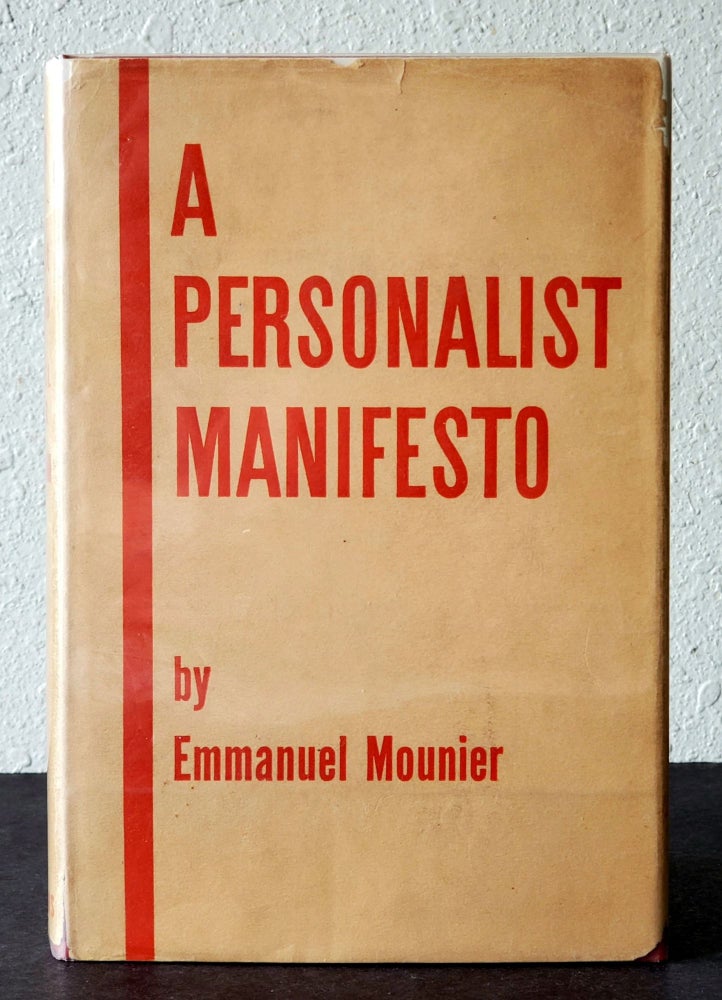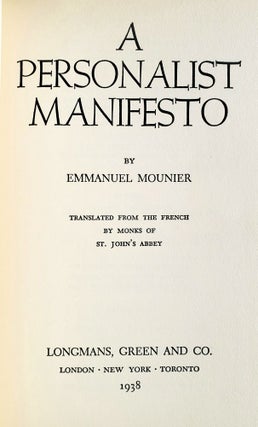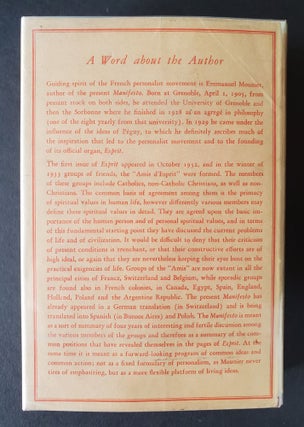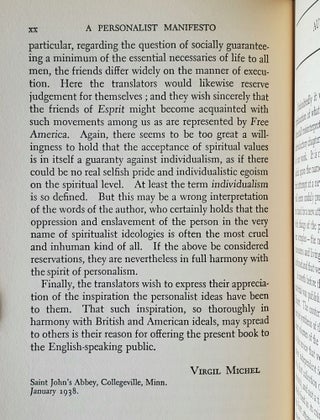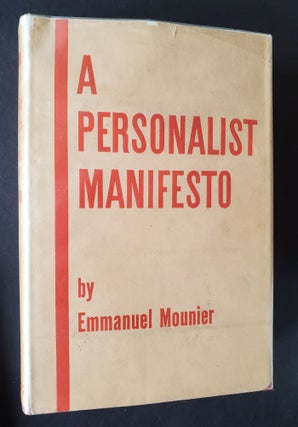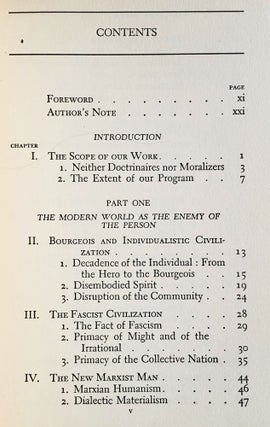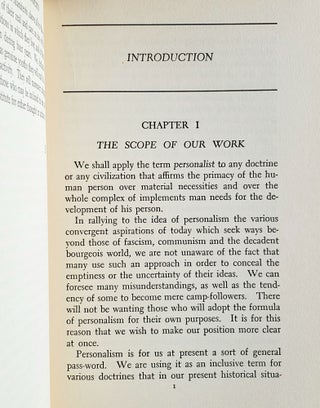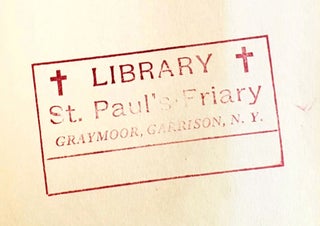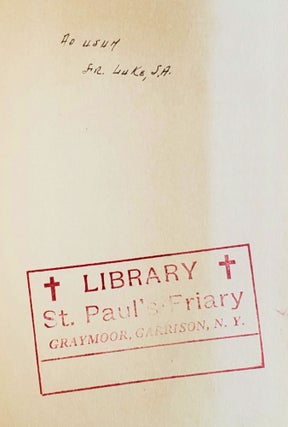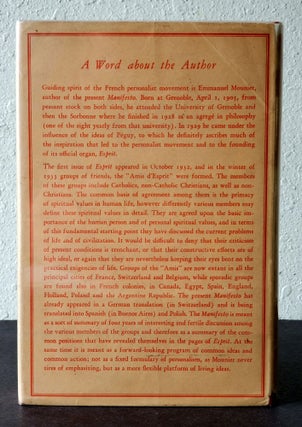A Personalist Manifesto; Translated from the French by the Monks of St. John's Abbey
London: Longmans, Green and Co., 1938. First edition. 12 mo. (7 5/8 inches tall), original red cloth, original dust jacket. Slight offsetting to endpapers, ex-libris: faint ink-stamps (St. Paul's Friary Graymoor) to endpapers, tiny signature ("Ad Usum / Fr. Luke, S.A."), mild edge-wear, chipping to ends of toned dust jacket. An excellent copy. Item #1219
"WE DEDICATE THIS MANIFESTO ABOVE ALL TO THE YOUNG"
Scarce first edition in English of Emmanuel Mounier's first book-length exposition of Personalism—with a valuable Introduction by Dom Virgil Michel of St John's Abbey. Complete in the original dust jacket—this copy comes from the library of St. Paul's Friary Graymoor. A rare book with a fine provenance.
Inspired by Charles Peguy, Mounier was the founder and editor of the Paris review Espirit. His distinctive synthesis of Personalism during the 1930's would have a lasting influence on a wide range of figures working in Catholic literature, philosophy and theology. First published in the magazine in October 1936, "Mounier called his own philosophical attitude Personalism, a perspective which accorded the highest value to the human person. As persons, so Mounier maintained, we possess both a temporal and spiritual dimension; we exist in history, in relationship with others, but open to transcendence and ultimately to God. This concept of the person, he believed was denied as much by an atheistic totalitarianism of the Left as by the bourgeois materialism of capitalist society" (Robert Ellsberg).
Personalism holds that "the human person is the basic unit of society, and that all forms of social organization—family, nation, church, state—are sound only insofar as they uphold the dignity of each and every person and prompt every person into direct encounters with others" (Paul Elie). The text consists of an Introduction, Part One: The Modern World as the Enemy of the Person, Part Two: What is Personalism?, Part Three: Chief Structures of a Personalist System, Part Four: Principles of Personalist Action. "The forces leading to the destruction of the person are detailed and the significance of the person—through whom the freedom and community of persons is reaffirmed—is emphasized" (George F. McLean).
Translated from the original French by the monks of St. John's Abbey, with a valuable Foreword (dated, "Saint John's Abbey, Collegeville, Minn. / January 1938") by Virgil Michel. Lamenting the "troublous times" of the Great Depression, Michel notes that "We are definitely at the end of an era also here in the United States. The road our civilization has been taking for the past century and more has led to a distinct impasse. This is true of the economic imperialism of nations as such and of the growing division between the 'haves' and the 'have-nots' that has resulted from dying economic individualism and liberalism." The text is prefaced by a brief Author's Note, "We dedicate this Manifesto above all to the young. It was born of their zeal and care as also of the historical conditions in which they live. We dedicate it to them since as genuine youths they will read it as a call to creative activity. They will moreover safeguard it against all those who may be inclined to see and find in it a substitute for either thought or action of their own. E.M." With an Index. Elie, The Life You Save May Be Your Own: An American Pilgrimage. Ellsberg, All Saints: Daily Reflections on Saints, Prophets, and Witnesses for Our Time. George F. McLean, An Annotated Bibliography of Philosophy in Catholic Thought, 1900-1964, 331.
Price: $350.00

